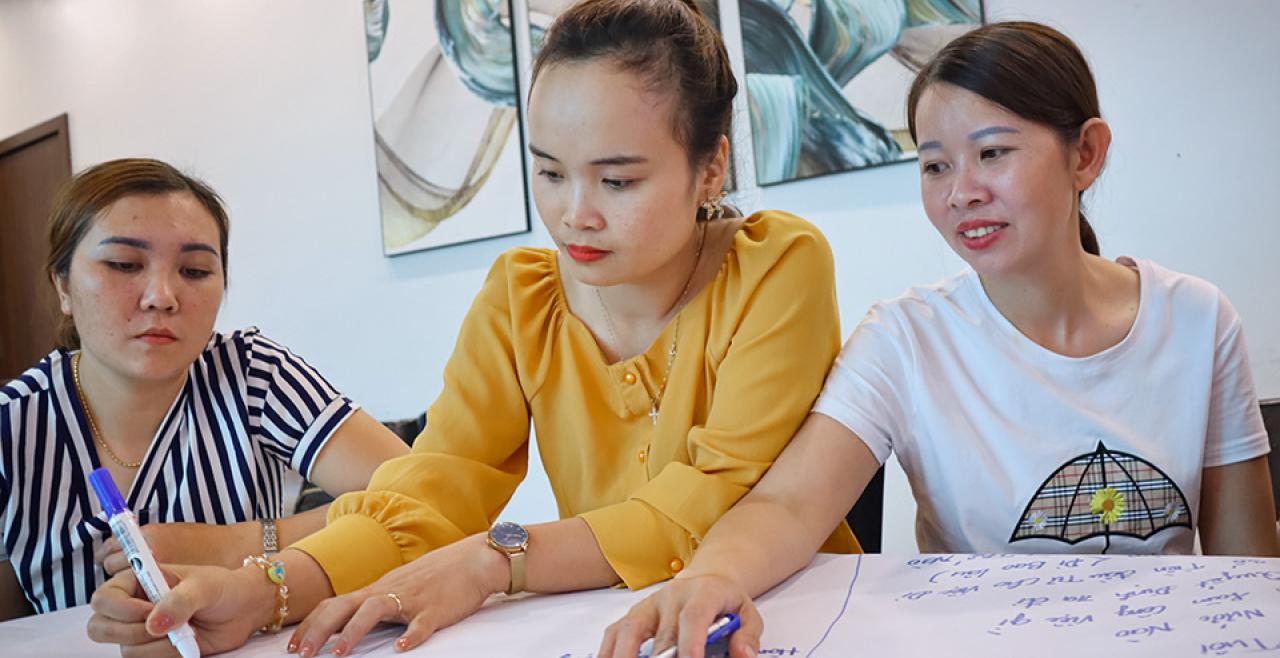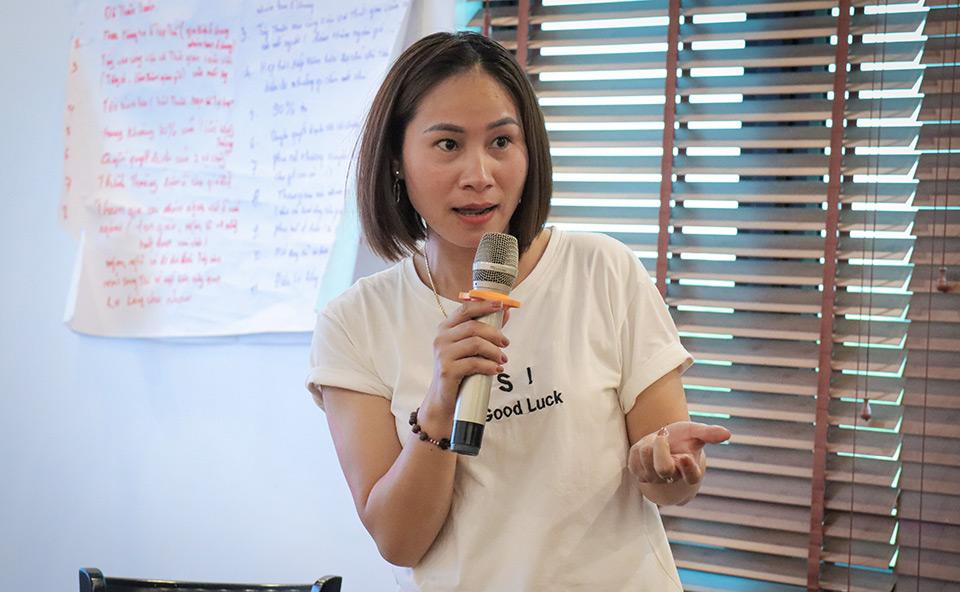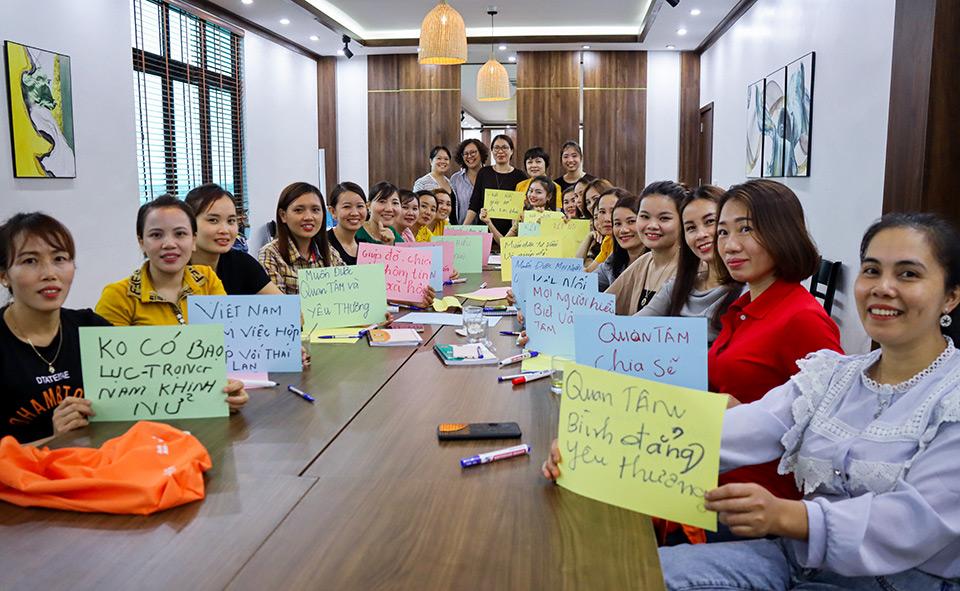How women migrant workers in Viet Nam are helping each other stay safe abroad

HA TINH, Viet Nam — Thi Nguyen said she sensed something was wrong when the taxi driver in Bangkok, after realizing she was a migrant worker from Viet Nam, took what he said was “a new road” to her destination. She tried to stay calm.
“When he reached the edge of a forest, he locked all the doors and went out for a call, perhaps looking for smugglers." - Thi Nguyen, migrant worker
“When he reached the edge of a forest, he locked all the doors and went out for a call, perhaps looking for smugglers,” she said. “As soon as he got back into the taxi, I told him, using my fluent Thai speaking skills, that I had just called my cousin, who would report the incident to the local police if he did not drive me back.
“I was lucky. He finally got scared so I could come home,” Thi recalled.
Thi said that after that experience five years ago, she always took photos of the plates and sent them to friends before stepping into any car.
She shared her experience at a training for about 60 women who had worked abroad and returned to Thach Ha and Hong Linh communes of Ha Tinh city in Northern-Central Viet Nam. The rate of overseas migration from this area is very high. The women had worked in Asia and Europe and returned home due to the COVID-19 pandemic, but wished to go back abroad.
Migrant workers attending the UN-supported workshop in Ha Tinh, Viet Nam, on 23 April 2021 show their hopes for future journeys abroad. The sign at the left foreground says, “No violence-No valuing men above women”. Photo: UN Women/Thao Hoang
The Institute for Social Development Studies, a civil society organization led by gender expert Khuat Thu Hong, facilitated the 21-25 April training as part of the Safe and Fair Programme. The programme is run jointly by International Labour Organization and UN Women under the Spotlight Initiative and helps protect South-East Asia’s migrant workers from violence and abuse.
"Sometimes, I still dream of hearing the foreman shouting in the textile factory.” - Cam Nguyen, 38
According to International Labour Organization, about 400,000 Vietnamese are now working in over 40 countries and territories. The number of women among the migrants increased from 10 per cent in 2000 to nearly 40 per cent in 2017, the Government of Viet Nam says.
Both documented or undocumented workers face risks of violence and abuse from recruiters, employers, and others. Those who lack documents or do domestic labour are particularly vulnerable.
“Migration presents opportunities not only for the migrants, but also for the countries of origin, transit and destination. However, there is work to be done to ensure that labour migration is safe, particularly for women,” said Elisa Fernandez Saenz, UN Women Representative in Viet Nam.
Through capacity building and knowledge exchange interventions of the Safe and Fair Programme, women migrant workers learned about gender equality, types of violence against women, and ways to access information and quality support services in both the origin and destination countries. They also formed online and offline groups to continue exchanging information on these and other migrant worker topics via social media. They have become more confident to share what they learned with others who plan to migrate abroad to reduce risks throughout their migration pathway.
Thi, who was working in a restaurant, returned from Thailand last year with her two children. Her husband is still working there, and she plans to go back.
However, Cam Nguyen, 38, has no wish to go back abroad. She said she had worked 10-12 hours a day, every day and without holidays or vacation, at a textile factory in Taiwan and was paid only a third of the contracted salary.
“After 18 months, I lost 11 kilos,” she said at the workshop. “My family’s loan had been paid several years ago. I want to stay home to take care of my children. Sometimes, I still dream of hearing the foreman shouting in the textile factory,” Cam said.
Cam says she is happy in Viet Nam; however, she wants to help others prepare for better experiences abroad and how to stay safe. She is a leader of the exchange-information group in Hong Linh’s commune, which started with 20 core members in July 2020 and has doubled in size.
By Thao Hoang. Originally published by UN Women.


